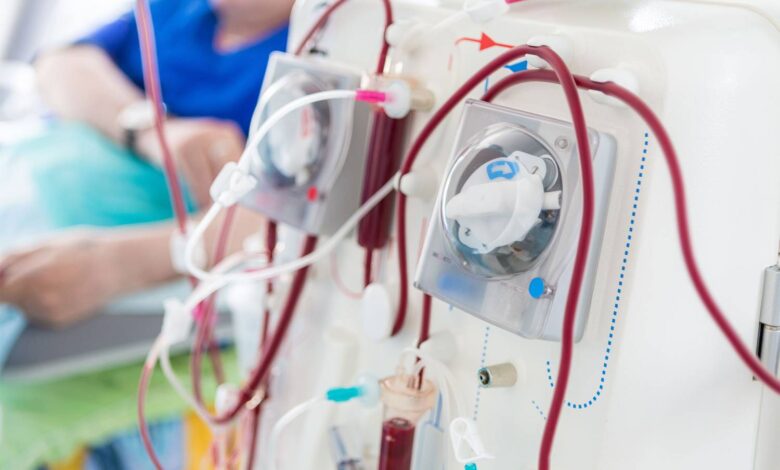Editorial
Benefits of Dialysis

Dialysis is a medical procedure used to remove waste products, toxins, and excess fluids from the blood when the kidneys are no longer able to function effectively. It is commonly used to treat patients with end-stage kidney disease or acute kidney failure. The benefits of dialysis include:
1. Removal of Waste and Toxins
- Dialysis helps to remove harmful waste products, such as urea and creatinine, from the blood, preventing them from building up and causing complications.
2. Regulation of Fluid Levels
- It helps to maintain a healthy balance of fluids in the body by removing excess water, which can reduce swelling (edema) and prevent complications like high blood pressure or pulmonary edema.
3. Electrolyte Balance
- Dialysis regulates the levels of electrolytes such as potassium, sodium, and calcium in the blood, preventing dangerous imbalances that could lead to heart arrhythmias or muscle dysfunction.
4. Improved Quality of Life
- For patients with kidney failure, dialysis can alleviate symptoms such as fatigue, nausea, shortness of breath, and itching, improving their overall quality of life.
5. Life-Saving Treatment
- Dialysis serves as a vital treatment for those with severe kidney disease, helping to sustain life when the kidneys are no longer functioning.
6. Control of Blood Pressure
- By removing excess fluid and sodium, dialysis helps to manage high blood pressure, a common issue in kidney failure patients.
7. Support for Other Treatments
- Dialysis can act as a bridge for patients waiting for a kidney transplant, allowing them to maintain their health until a donor organ becomes available.
8. Customizable Treatment
- Dialysis can be tailored to fit the patient’s needs, with options like hemodialysis (performed at a clinic or at home) and peritoneal dialysis (done at home using the lining of the abdomen).
9. Prevention of Complications
- Regular dialysis reduces the risk of complications associated with kidney failure, such as heart disease, bone disease, and metabolic imbalances.
While dialysis provides these benefits, it is not a cure for kidney disease, and patients often require long-term treatment or a kidney transplant. It’s also important to maintain a healthy lifestyle, including a kidney-friendly diet, to complement the benefits of dialysis.




